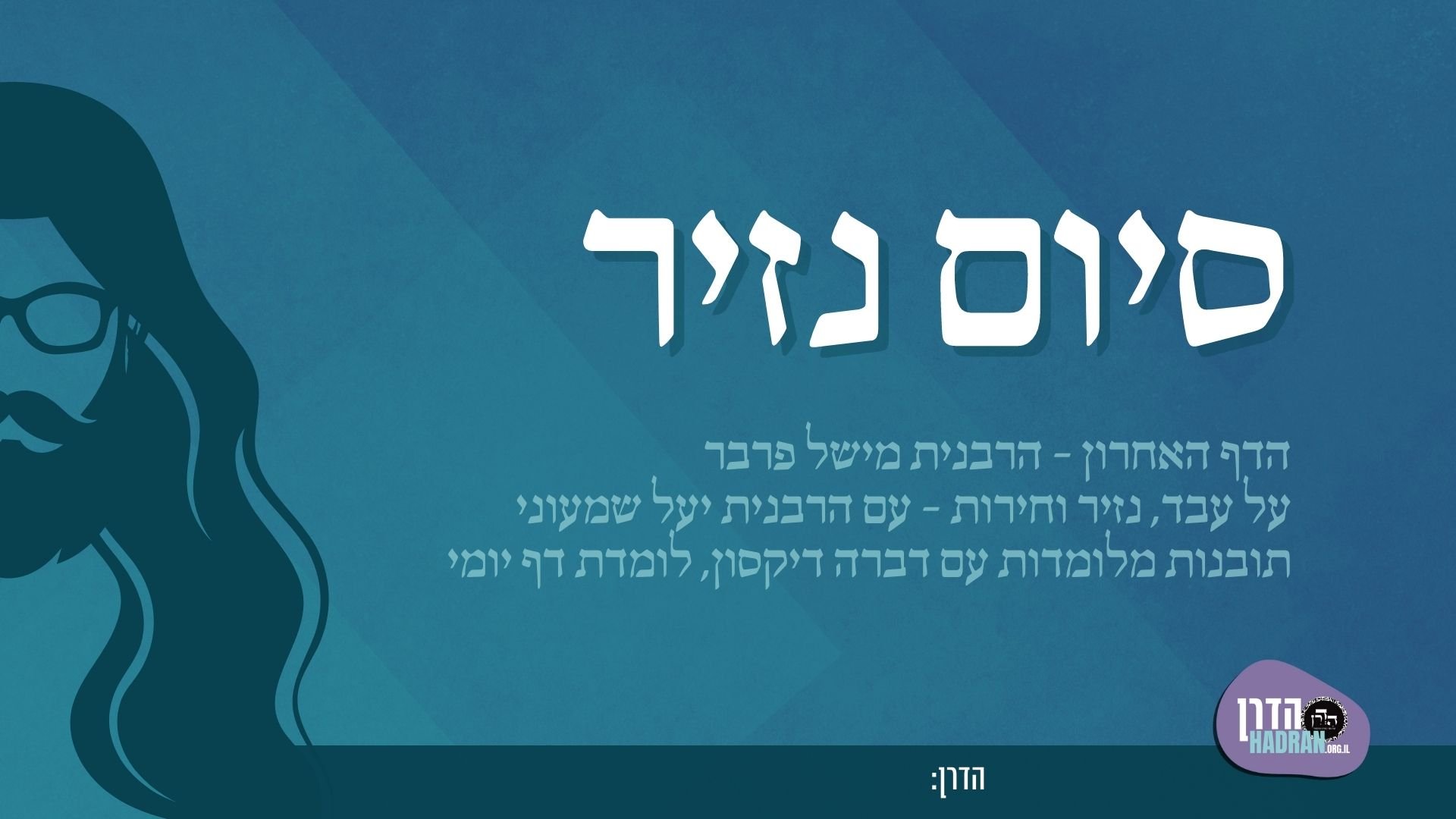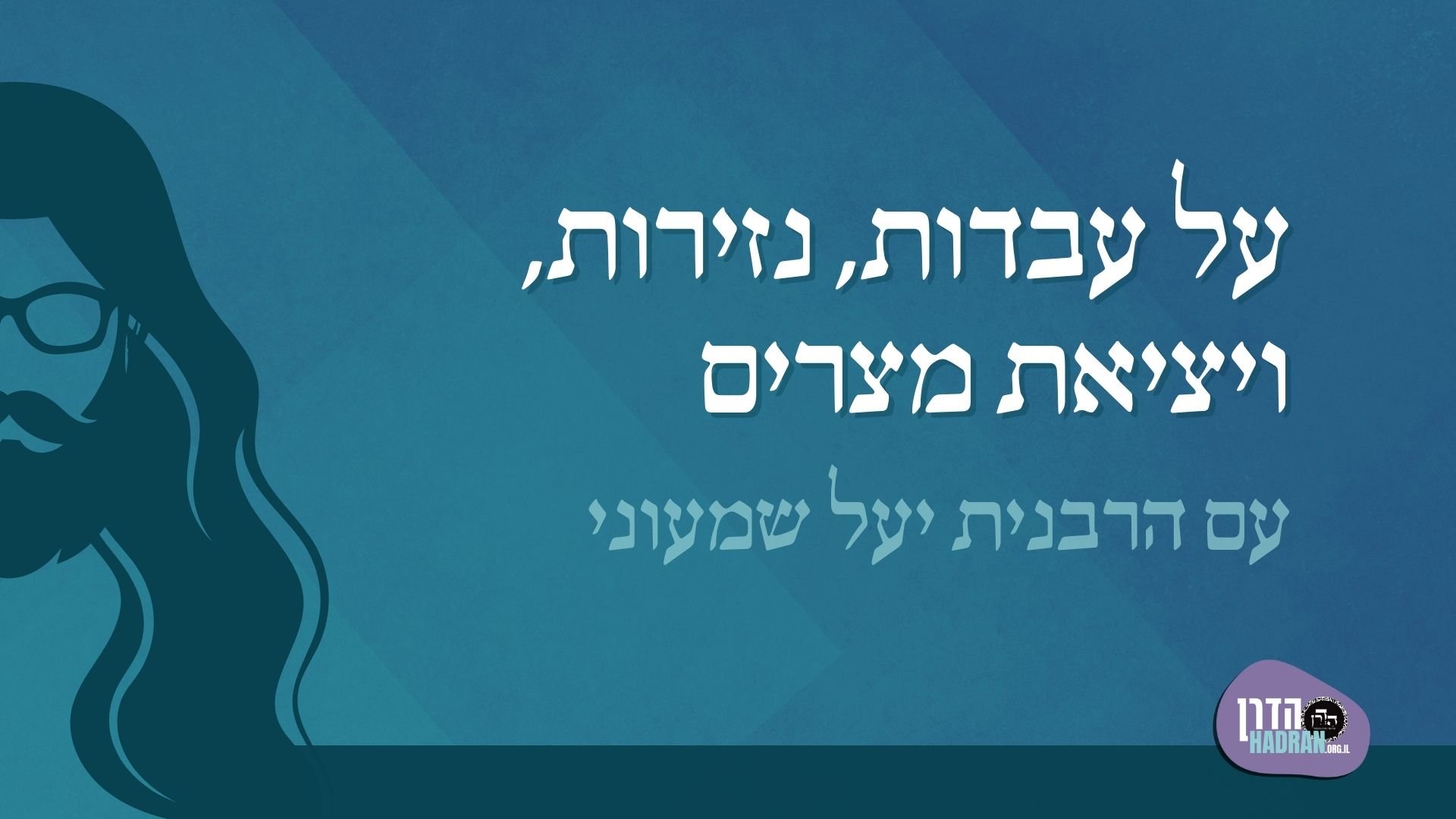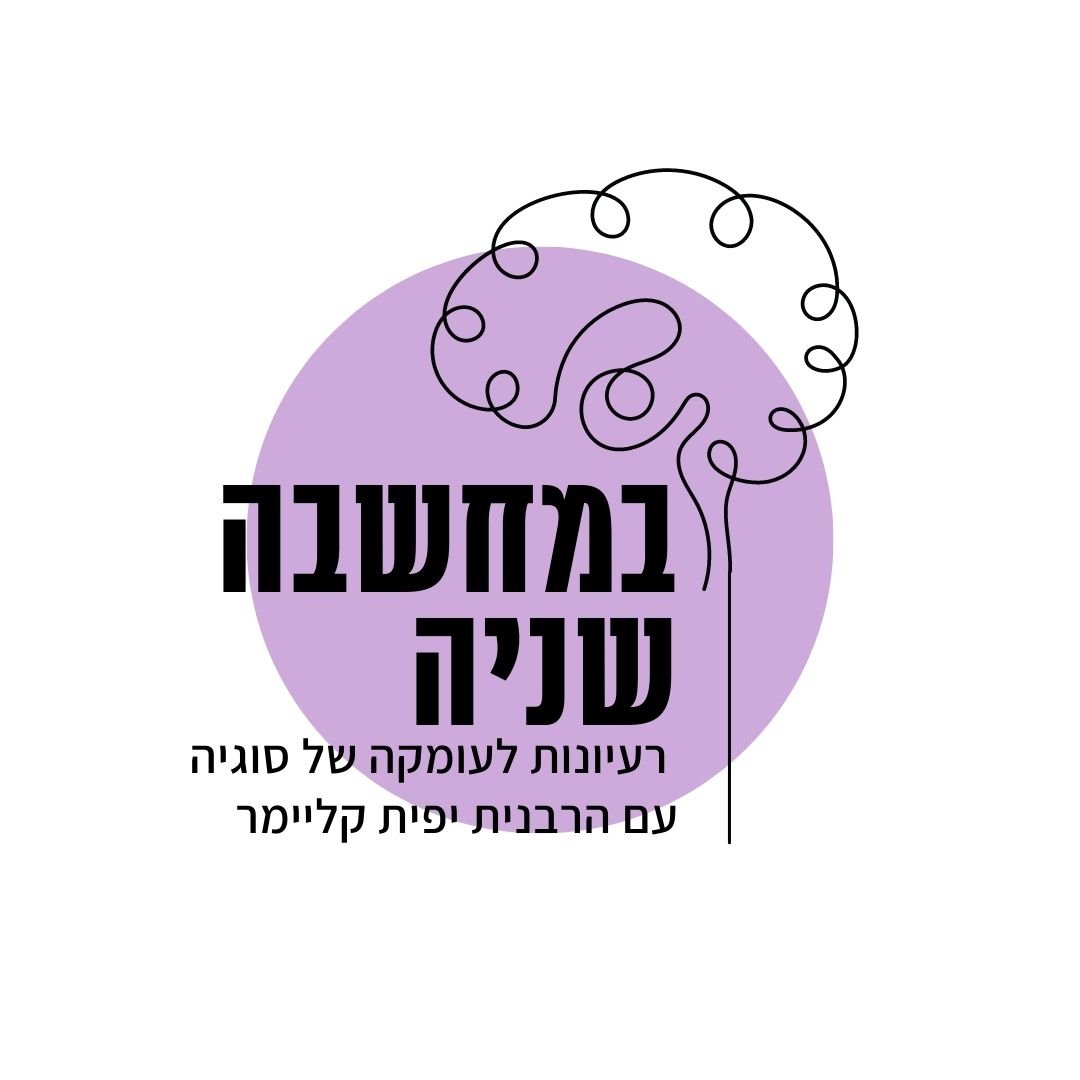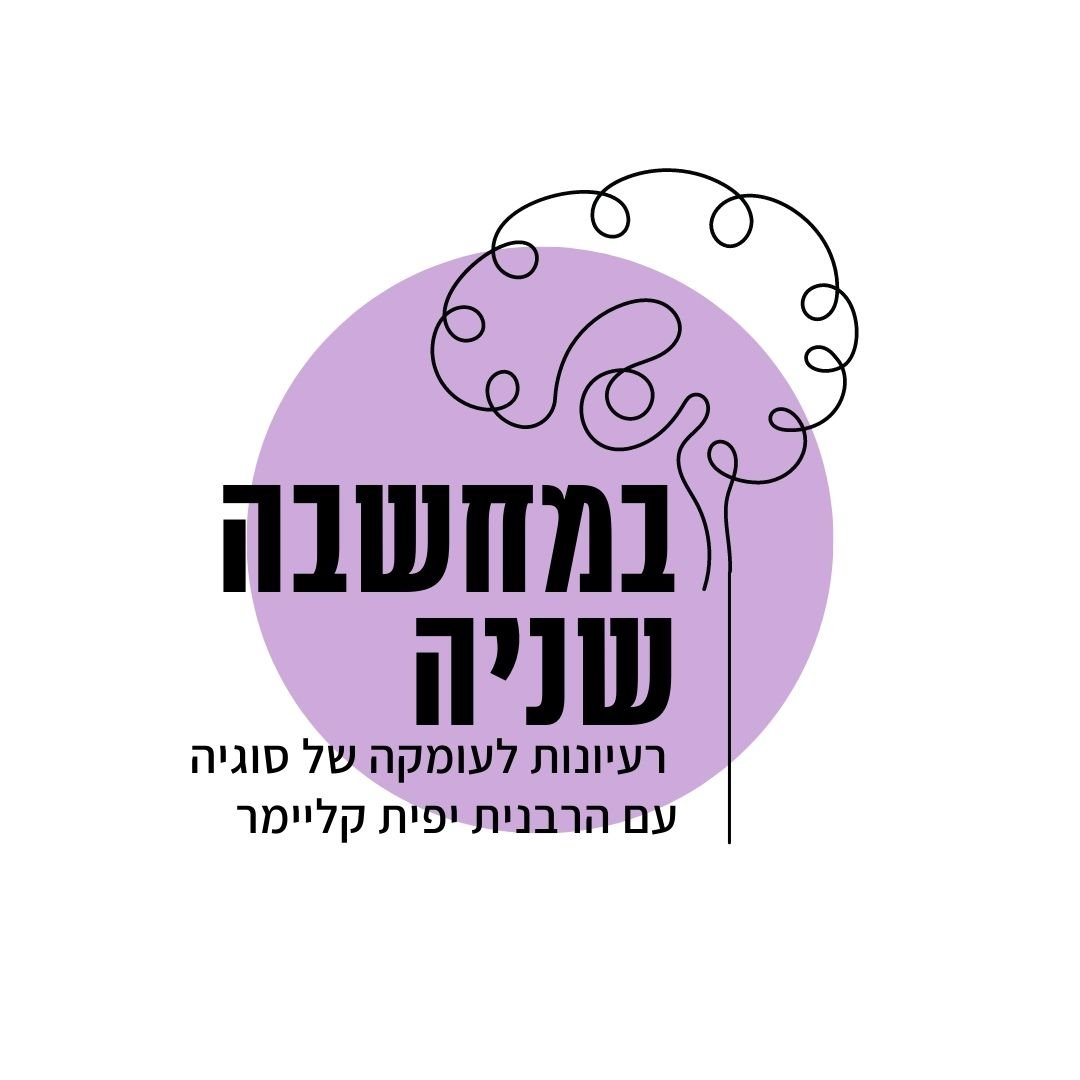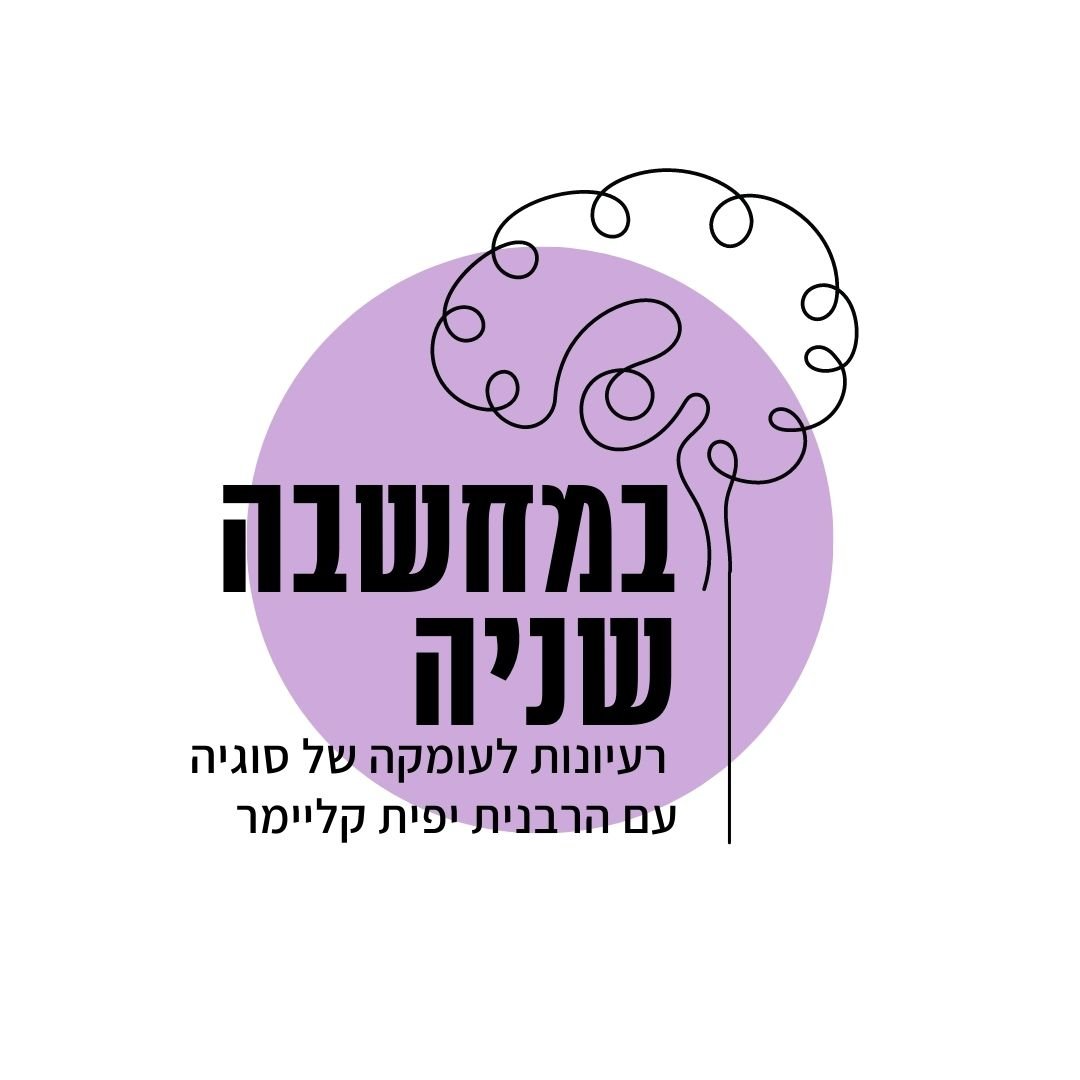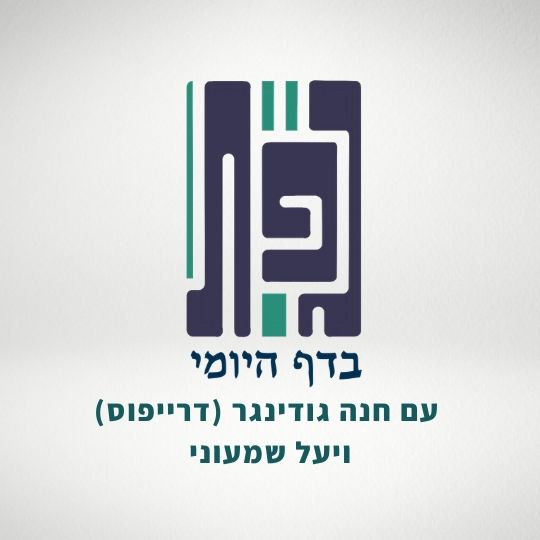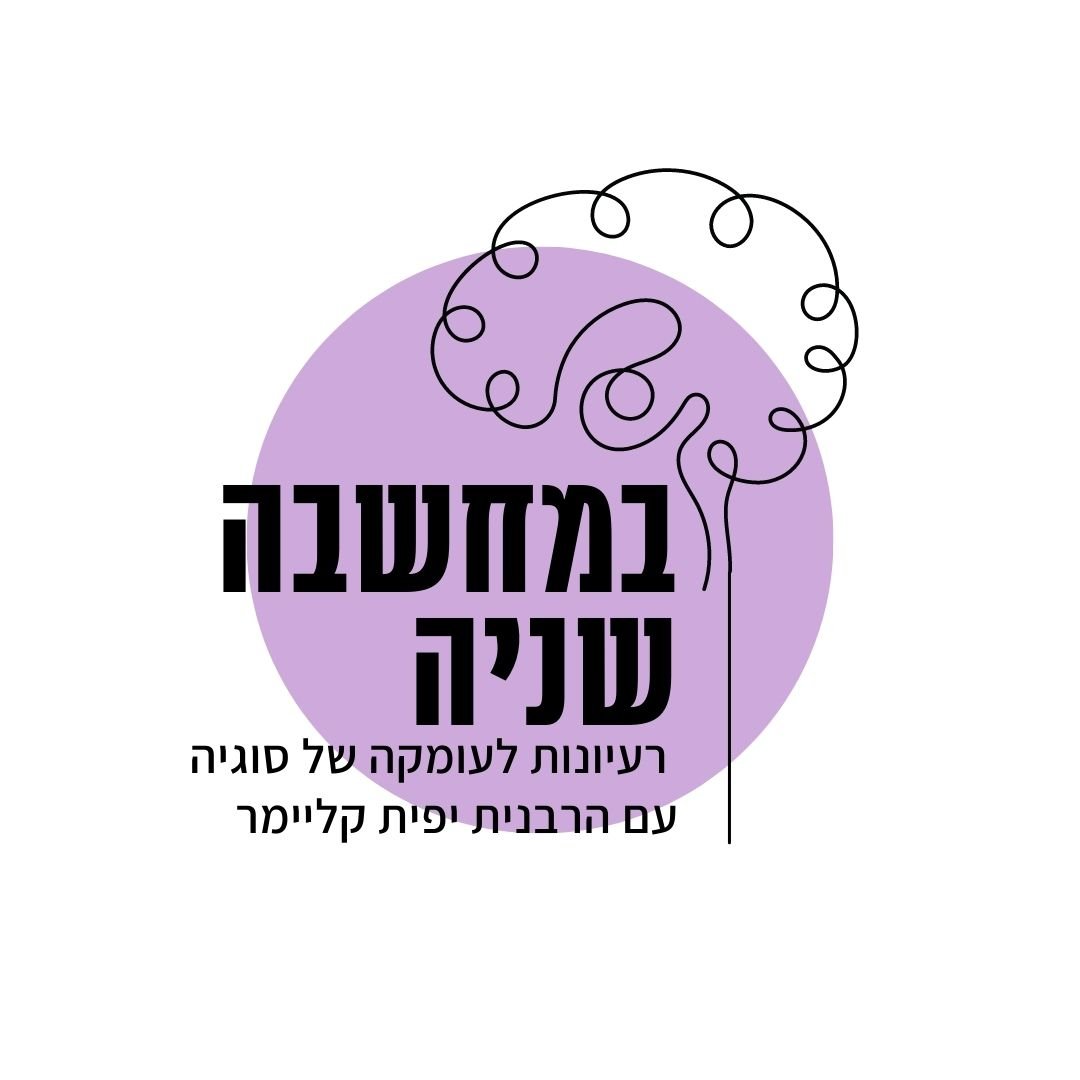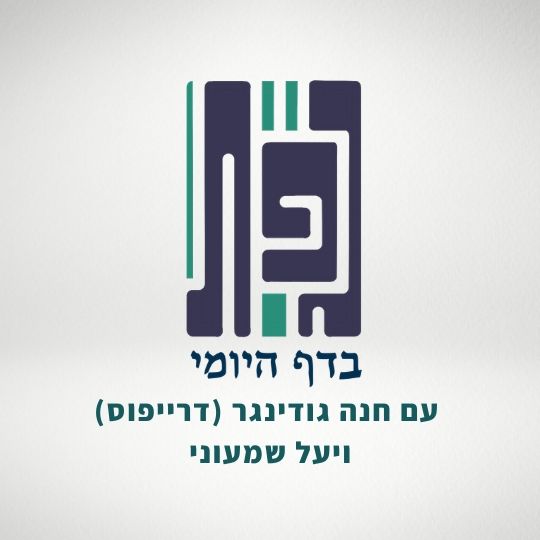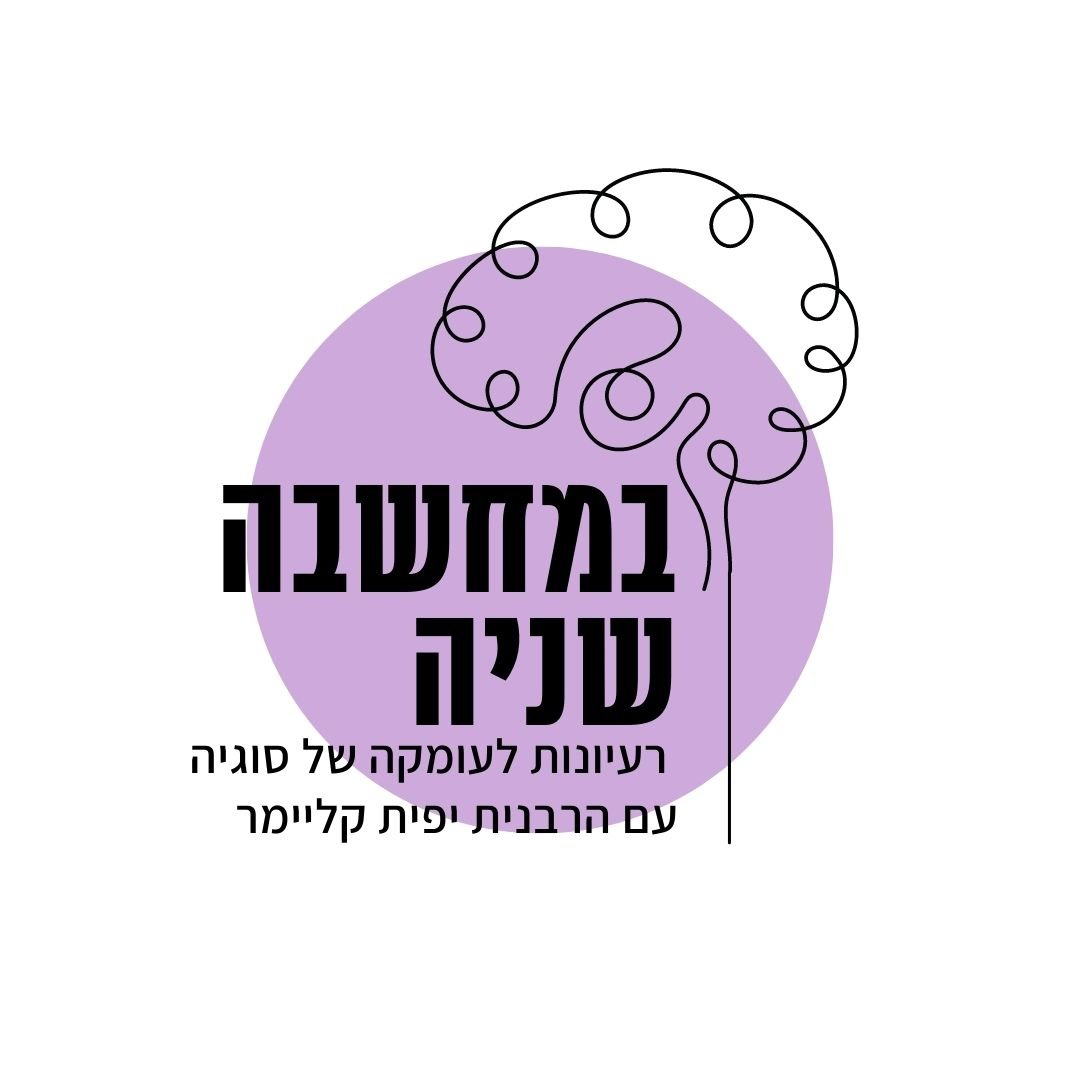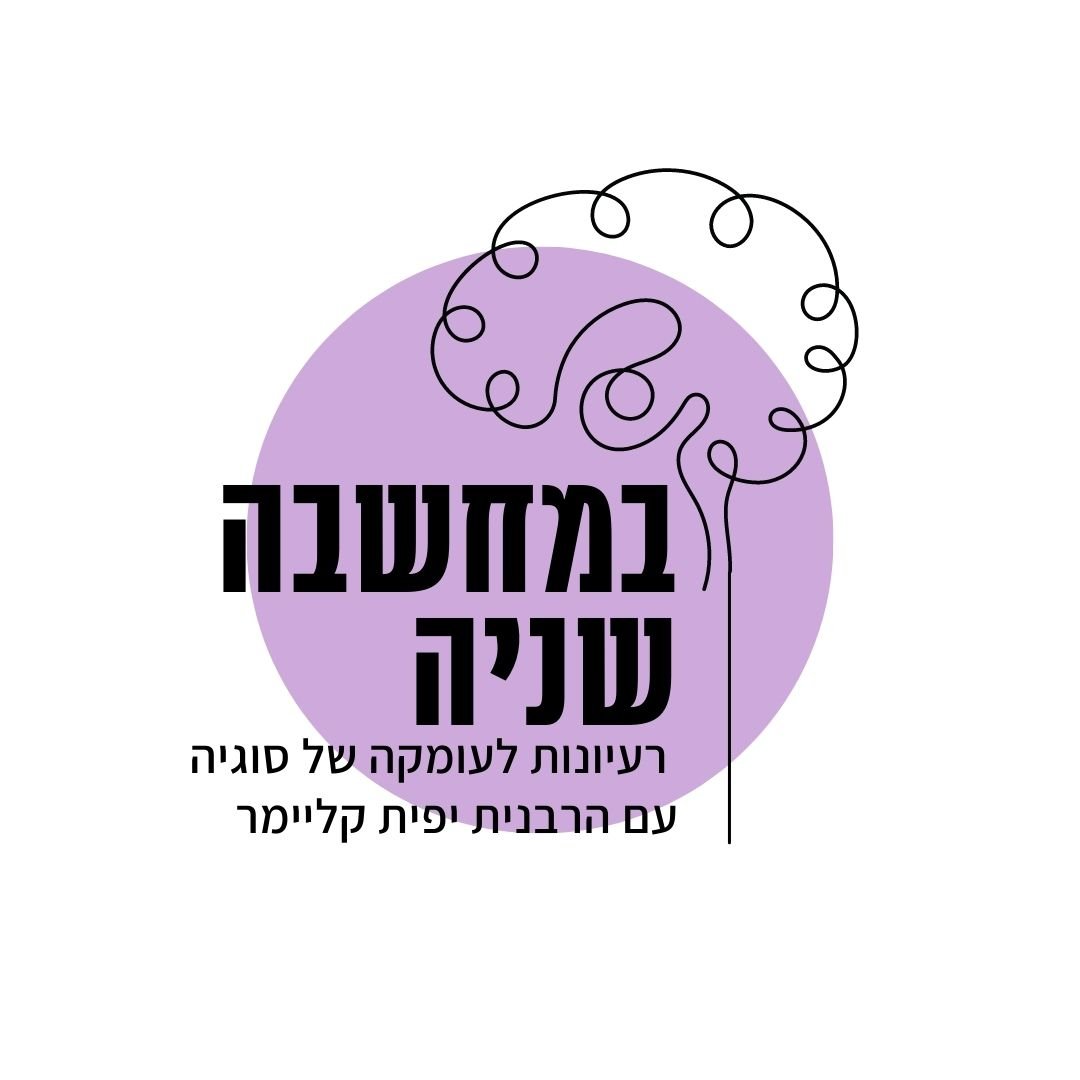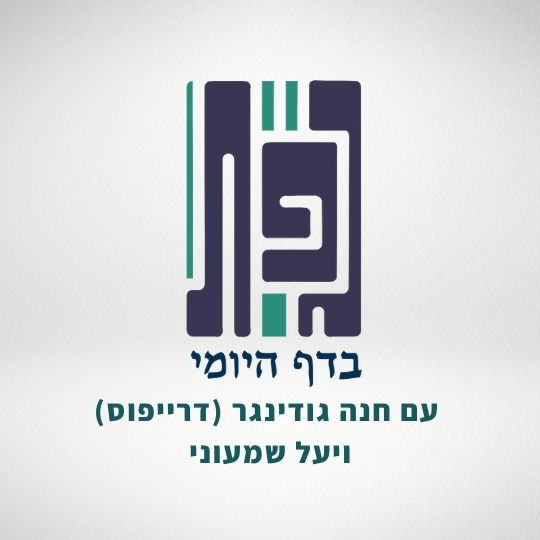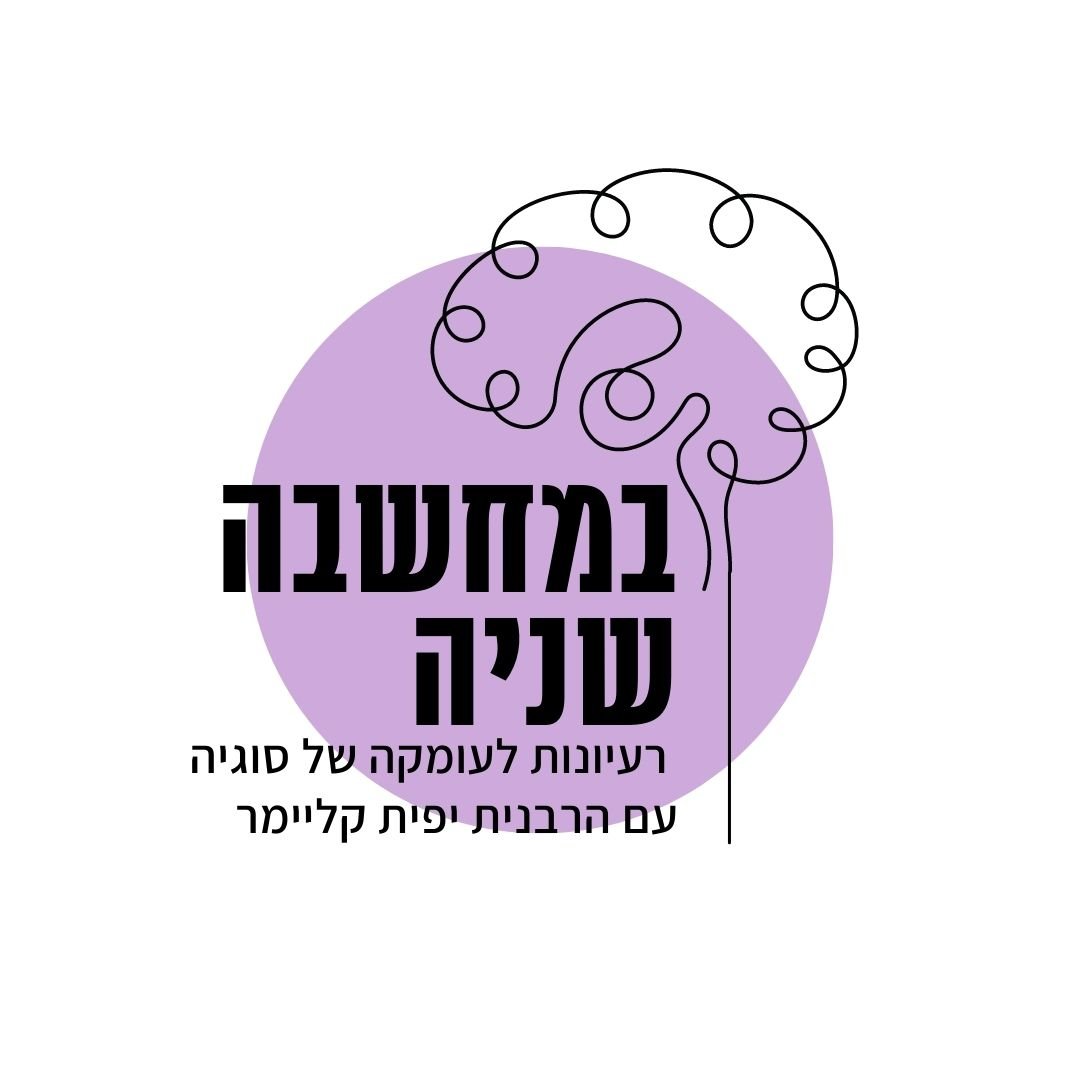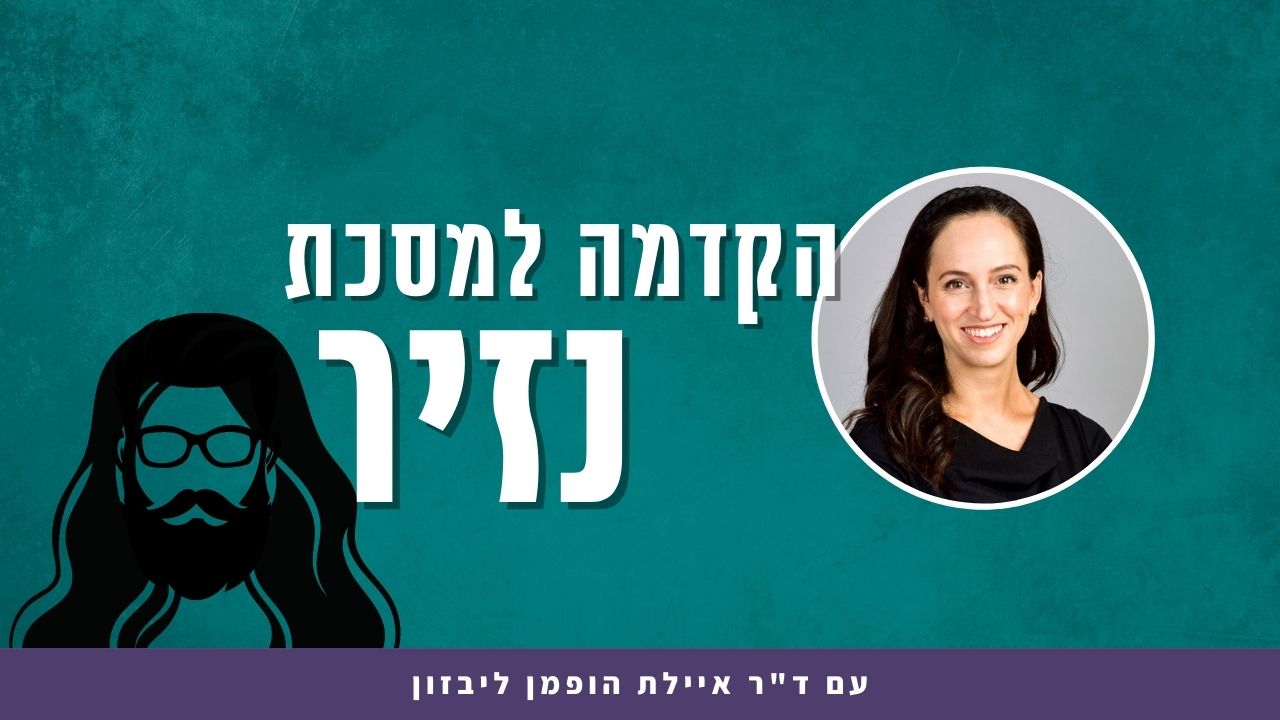שתי שאלות נוספות מועלות נגד הבנתו של רב חסדא במשנתנו ממקורות תנאיים ואין פתרונות. קושי אחד בא ממשנה בהמשך לגבי מקרה של נזיר שספק נטמא ספק נצטרע. השני ממקור שמנסה להבין מניין לנו שימי צרעתו לא עולים למניין ימי נזירות. רבי אלעזר מסר בשם רבי יהושע שהטומאות שבגינן צריך הנזיר להתגלח הן אותן טומאות שחייבים בעונש כרת על כניסה לבית המקדש בטומאה. טומאות שהנזיר אינו צריך להתגלח בגינן, אין דין כרת אם נכנסים בטומאה לבית המקדש. רבי מאיר מעלה על כך שאלה – מדוע קטגוריית הטומאה האחרונה תהיה מקלה יותר מטומאת קלה של שרץ שעל טומאה ממנו חייבים כרת על ביאת מקדש? מדוע משנתנו אומרת שרבי אלעזר הביא דין זה בשם רבי יהושע כאשר בתוספתא נאמר שלמד מרבי יהושע בר ממל ששמע מרבי יהושע? אנו למדים מכאן שכאשר מעבירים הלכה בשם אדם אמצעי ששמע אותה ממישהו אחר, מזכירים את הראשון והאחרון ולא את האדם האמצעי שממנו למד. רבי עקיבא מטיל ספק בדין שנלמד קודם בפרק – שהנזיר לא מגלח על טומאה מרביעית לוג דם אפילו במגע ומשא. הוא שואל מהיגיון: אם עצם בגודל שעורה גורמת לנזיר להתגלח, למרות שהיא מעבירה טומאה רק במגע או במשא, ורביעית דם חמור יותר כי מטמא באוהל, הגיוני ברביעית דם יטמא במגע ובמשא! רבי יהושע עונה שאמנם ההיגיון של רבי עקיבא נכון, אבל יש מסורת ועל פי זה קובעים שעל רביעית דם אין הנזיר מגלח.
רוצה להקדיש שיעור?

כלים
כלים
העמקה
רוצה להבין מה באמת קורה מתחת לפני השטח של הסוגיה?
שיעורים, פודקאסטים והרחבות של מיטב המורות שלנו יפתחו לך עוד זוויות וכיווני חשיבה.
חדשה בלימוד הגמרא?
זה הדף הראשון שלך? איזו התרגשות עצומה! יש לנו בדיוק את התכנים והכלים שיעזרו לך לעשות את הצעדים הראשונים ללמידה בקצב וברמה שלך, כך תוכלי להרגיש בנוח גם בתוך הסוגיות המורכבות ומאתגרות.
פסיפס הלומדות שלנו
גלי את קהילת הלומדות שלנו, מגוון נשים, רקעים וסיפורים. כולן חלק מתנועה ומסע מרגש ועוצמתי.
נזיר נו
אוֹכֵל בְּקָדָשִׁים לְאַחַר שִׁשִּׁים יוֹם,
he eats sacrificial food after sixty days, when the status of uncertain leprosy has passed, and when he has completed all his obligations of naziriteship. He cannot shave for his leprosy right away, as he might be a pure nazirite, and the status of uncertain leprosy does not override naziriteship. Instead, after thirty days he shaves for his uncertain status as a confirmed leper and for his uncertain status as a pure nazirite. Once again, he is not permitted to shave a second time seven days later for the shaving done by a leper as part of his purification process in case he was not a leper but impure. Were that the case, it would mean that the previous shaving was for his impurity, and therefore he would be required to observe naziriteship in purity for thirty days. At the conclusion of this period, i.e., the sixtieth day, he shaves and may eat sacrificial food on the following day, as even if he was a full-fledged leper he has now shaved twice.
וְשׁוֹתֶה יַיִן וּמִיטַּמֵּא לְמֵתִים לְאַחַר מֵאָה וְעֶשְׂרִים יוֹם.
And he drinks wine and may become impure to bury a corpse after 120 days. In other words, this individual has not yet completed his naziriteship vow, as he might have been a confirmed leper, in which case both his acts of shaving would have counted for his leprosy. He therefore waits another thirty days and proceeds to shave on day ninety. Even at that stage, he may not yet drink wine or contract ritual impurity from a corpse, as he might have been impure, which would mean that his third shaving was for his impurity. Consequently, he counts another period of thirty days for his naziriteship of purity, at the end of which he may perform the shaving of purity, drink wine, and become impure from a corpse, 120 days from the start of his naziriteship.
וְתָנֵי עֲלַהּ: בַּמֶּה דְּבָרִים אֲמוּרִים — בִּנְזִירוּת מוּעֶטֶת, אֲבָל בִּנְזִירוּת בַּת שָׁנָה — אוֹכֵל בְּקָדָשִׁים לְאַחַר שְׁתֵּי שָׁנִים.
And it is taught in the Tosefta (6:1) with regard to that mishna: In what case is this statement said? With regard to a short naziriteship of thirty days. However, with regard to a naziriteship of a year, he eats sacrificial food after two years. He cannot shave until a year has passed, in case he is not a leper, and he may shave the second time only after a second year, in case he was ritually impure, and this was his naziriteship observed in purity. After two years, he may eat sacrificial meat, for if he was a full-fledged leper he has shaved twice.
וְשׁוֹתֶה יַיִן וּמִיטַּמֵּא לְמֵתִים לְאַחַר אַרְבַּע שָׁנִים.
However, if the first two shavings were for his leprosy, he has not shaved for his naziriteship at all, and therefore he must observe an additional year, shave, and observe another year of naziriteship, as perhaps his third shaving was for impurity and the other for his naziriteship in purity. And consequently, he may drink wine and become impure to bury a corpse after four years.
וְאִי סָלְקָא דַעְתָּךְ סָלְקִין לֵיהּ יוֹמֵי — תִּיסְגֵּי לֵיהּ בְּשָׁלֹשׁ שָׁנִים וּשְׁלֹשִׁים יוֹם!
And if it enters your mind that the days during which he was ritually impure count toward his naziriteship, it should be enough for him to observe three years and thirty days. Due to uncertainty, he cannot shave for his leprosy until a year has passed, in case he was a pure nazirite, and he must wait another year for his second shaving, as he might have been an impure nazirite. However, at that point, if the days of his counting are considered part of his naziriteship, as claimed by Rav Ḥisda, he should be allowed to wait a mere thirty days for hair growth, shave for his impure naziriteship, and then add a final year for his naziriteship in purity. The fact that he is obligated to wait four years proves that his time as a leper does not count toward his naziriteship.
וְעוֹד מֵתִיב רַב אָשֵׁי: אֵין לִי אֶלָּא יְמֵי טוּמְאָה, שֶׁאֵין עוֹלִין לוֹ מִן הַמִּנְיָן. יְמֵי חִלּוּטוֹ, מִנַּיִן? וְדִין הוּא: יְמֵי טוּמְאָה — מְגַלֵּחַ וּמֵבִיא קׇרְבָּן, וִימֵי חִלּוּטוֹ — מְגַלֵּחַ וּמֵבִיא קׇרְבָּן. מָה יְמֵי טוּמְאָתוֹ אֵין עוֹלִין לוֹ מִן הַמִּנְיָן — אַף יְמֵי חִלּוּטוֹ אֵין עוֹלִין לוֹ מִן הַמִּנְיָן.
And Rav Ashi raised a further objection from the following halakhic midrash: I have derived only that the days of impurity do not count as part of his tally of his naziriteship. From where do I derive that the days of his status as a confirmed leper also do not count toward his naziriteship? And is this not logical: After the days of impurity he shaves and brings an offering, and after his days of confirmed leprosy he likewise shaves and brings an offering; just as his days of impurity do not count as part of his tally, so too, the days of confirmed leprosy should not count as part of his tally.
לֹא, אִם אָמַרְתָּ בִּימֵי טוּמְאָתוֹ — שֶׁכֵּן מְבַטֵּל בָּהֶן אֶת הַקּוֹדְמִים, תֹּאמַר בִּימֵי חִלּוּטוֹ — שֶׁאֵין מְבַטֵּל בָּהֶן אֶת הַקּוֹדְמִין.
The Gemara rejects this argument: No, if you say that this is true with regard to his days of impurity, which negate the previous days, shall you also say that this is the case with regard to his days of confirmed leprosy, which do not negate the previous ones, as stated in the mishna?
אָמַרְתָּ, קַל וָחוֹמֶר הוּא: וּמָה נָזִיר בְּקֶבֶר, שֶׁשְּׂעָרוֹ רָאוּי לְתִגְלַחַת נְזִירוּת, אֵין עוֹלִין לוֹ מִן הַמִּנְיָן. יְמֵי חִלּוּטוֹ, שֶׁאֵין שְׂעָרוֹ רָאוּי לְתִגְלַחַת נְזִירוּת — לֹא כׇּל שֶׁכֵּן?!
The Gemara suggests another proof. You can say it is an a fortiori inference: And if a nazirite who uttered his vow when he was in a ritually impure place, e.g., a place of a grave, whose hair is fit for the shaving of naziriteship, and yet those days when he was impure do not count as part of his tally, then with regard to his days of confirmed leprosy, when his hair is not fit for the shaving of naziriteship, as he must first perform the shaving of leprosy, is it not all the more so that they should not count toward his naziriteship?
וְאֵין לִי אֶלָּא יְמֵי חִלּוּטוֹ. יְמֵי סְפָרוֹ, מִנַּיִן? וְדִין הוּא:
And I have derived only his days of confirmed leprosy. From where do I derive that his days of counting for purification from leprosy are not considered part of his term either? And is this not logical:
מָה יְמֵי חִלּוּטוֹ טָעוּן תִּגְלַחַת — אַף יְמֵי סְפָרוֹ. וּמָה יְמֵי חִלּוּטוֹ אֵין עוֹלִין לוֹ מִן הַמִּנְיָן — אַף יְמֵי סְפָרוֹ.
Just as the days of his confirmed leprosy require shaving, so too, the days of his counting require shaving; and just as the days of his confirmed leprosy do not count as part of his tally of naziriteship, so too, the days of his counting should not count toward his term of naziriteship?
יָכוֹל אַף יְמֵי הֶסְגֵּרוֹ כֵּן? וְהַדִּין נוֹתֵן: חָלוּט מְטַמֵּא מִשְׁכָּב וּמוֹשָׁב, וִימֵי הֶסְגֵּרוֹ מְטַמֵּא מִשְׁכָּב וּמוֹשָׁב. אִם לָמַדְתָּ לִימֵי חִלּוּטוֹ שֶׁאֵין עוֹלִין לוֹ מִן הַמִּנְיָן — אַף יְמֵי הֶסְגֵּרוֹ אֵין עוֹלִין לוֹ מִן הַמִּנְיָן.
One might have thought that even his days of quarantine as a leper should share the same halakha and not be counted. And it is logical that those days should not count for him either, as the two states are comparable: A confirmed leper renders items ritually impure through lying or sitting, and a leper in the days of his quarantine also renders items impure through lying or sitting. Consequently, if you learned with regard to the days of confirmed leprosy that they do not count as part of his tally, so too, the days of quarantine should not count as part of his tally either.
אָמַרְתָּ: לֹא, אִם אָמַרְתָּ בִּימֵי חִלּוּטוֹ, שֶׁכֵּן חִלּוּטוֹ טָעוּן תִּגְלַחַת וּמֵבִיא קׇרְבָּן, לְפִיכָךְ אֵין עוֹלִין. תֹּאמַר בִּימֵי הֶסְגֵּרוֹ, שֶׁאֵין טָעוּן תִּגְלַחַת, וְאֵינוֹ מֵבִיא קׇרְבָּן, לְפִיכָךְ יַעֲלוּ לַמִּנְיָן.
The Gemara rejects this argument: You can say in response: No, if you said this halakha with regard to the days of confirmed leprosy, the reason is that his confirmed state of leprosy requires him to shave after he is healed and to bring an offering before he can commence his naziriteship. Therefore, these days do not count toward his naziriteship. However, will you say the same with regard to the days of his quarantine, which do not require shaving and for which he does not bring an offering? Therefore, perhaps they should count toward his tally.
מִכָּאן אָמְרוּ: יְמֵי סְפָרוֹ וִימֵי גְמָרוֹ — אֵין עוֹלִין לוֹ מִן הַמִּנְיָן. אֲבָל יְמֵי הַזָּב וְהַזָּבָה וְהֶסְגֵּרוֹ שֶׁל מְצוֹרָע — הֲרֵי אֵלּוּ עוֹלִין לוֹ.
From here they stated: The days of a leper’s counting and the days of his confirmed leprosy, when he is a full-fledged leper, do not count as part of his tally of his term of naziriteship. However, the days of the impurity of the zav and the zava and the days of a leper’s quarantine do count as part of his tally of his term of naziriteship.
קָתָנֵי מִיהַת: לָא, אִם אָמַרְתָּ בִּימֵי טוּמְאָה שֶׁכֵּן מְבַטֵּל בָּהֶן אֶת הַקּוֹדְמִין, תֹּאמַר בִּימֵי חִלּוּטוֹ. בְּמַאי? אִילֵימָא בִּנְזִירוּת מוּעֶטֶת, הָא בָּעִינַן גִּידּוּל שֵׂעָר.
With regard to the issue at hand, in any event the baraita teaches: No, if you say that this is true with regard to his days of impurity, which negate the previous days, shall you also say that this is the case with regard to his days of confirmed leprosy, which do not negate the previous ones? The Gemara analyzes this argument: To what does this statement refer? If we say it is referring to a short naziriteship of thirty days, this cannot be the case, as we require hair growth of thirty days after his purification.
אֶלָּא לָאו בִּנְזִירוּת מְרוּבָּה, וְקָתָנֵי שֶׁאֵין עוֹלִין לוֹ מִן הַמִּנְיָן. אַלְמָא לָא סָלְקִין לֵיהּ! שְׁמַע מִינַּהּ.
Rather, is it not the case that it is referring to a lengthy naziriteship, and nevertheless the baraita teaches that they do not count as part of his tally. Apparently, his days as a full-fledged leper do not count toward his term of naziriteship, which contradicts Rav Ḥisda’s ruling. The Gemara concludes: Learn from this that Rav Ḥisda’s opinion should be rejected.
מַתְנִי׳ אָמַר רַבִּי אֱלִיעֶזֶר מִשּׁוּם רַבִּי יְהוֹשֻׁעַ: כׇּל טוּמְאָה מִן הַמֵּת שֶׁנָּזִיר מְגַלֵּחַ עָלֶיהָ — חַיָּיבִין עָלֶיהָ עַל בִּיאַת מִקְדָּשׁ. וְכׇל טוּמְאָה מִן הַמֵּת שֶׁאֵין הַנָּזִיר מְגַלֵּחַ עָלֶיהָ — אֵין חַיָּיבִין עָלֶיהָ עַל בִּיאַת מִקְדָּשׁ.
MISHNA: Rabbi Eliezer said in the name of Rabbi Yehoshua: With regard to any ritual impurity from a corpse for which a nazirite must shave, one is liable due to the prohibition of entering the Temple after contracting that impurity. If someone who became impure from one of those sources of impurity enters the Temple, he violates the prohibition against an impure individual entering the sacred space. And with regard to any impurity from a corpse for which a nazirite does not shave, one is likewise not liable due to the prohibition of entering the Temple after contracting it.
אָמַר רַבִּי מֵאִיר: לֹא תְּהֵא זוֹ קַלָּה מִן הַשֶּׁרֶץ.
Rabbi Meir said: This impurity from a corpse that does not obligate a nazirite to shave should not be more lenient than the impurity of a creeping animal. The Torah clearly states that one rendered impure from a creeping animal is prohibited from entering the Temple (see Leviticus 5:2–3).
גְּמָ׳ וְרַבִּי אֱלִיעֶזֶר מִשּׁוּם רַבִּי יְהוֹשֻׁעַ גְּמַר לַהּ? וְהָא מִשּׁוּם רַבִּי יְהוֹשֻׁעַ בַּר מֶמֶל גְּמַר לָהּ. דְּתַנְיָא, אָמַר רַבִּי אֱלִיעֶזֶר: כְּשֶׁהָלַכְתִּי לְעַרְדַּסְקִיָּא, מָצָאתִי אֶת רַבִּי יְהוֹשֻׁעַ בֶּן פֵּתֶר רֹאשׁ שֶׁהָיָה יוֹשֵׁב וְדָן לִפְנֵי רַבִּי מֵאִיר בַּהֲלָכָה: כׇּל טוּמְאָה מִן הַמֵּת שֶׁהַנָּזִיר מְגַלֵּחַ עָלֶיהָ — חַיָּיבִין עָלֶיהָ מִשּׁוּם בִּיאַת מִקְדָּשׁ. וְכׇל טוּמְאָה מִן הַמֵּת שֶׁאֵין הַנָּזִיר מְגַלֵּחַ עָלֶיהָ — אֵין חַיָּיבִין עָלֶיהָ מִשּׁוּם בִּיאַת מִקְדָּשׁ. אָמַר לוֹ: אַל תְּהֵא זוֹ קַלָּה מִשֶּׁרֶץ.
GEMARA: The Gemara asks: And did Rabbi Eliezer learn this halakha in the name of Rabbi Yehoshua ben Ḥananya? But didn’t he learn it in the name of Rabbi Yehoshua bar Memel? As it is taught in a baraita that Rabbi Eliezer said: When I went to a place called Ardaskeya, I found Rabbi Yehoshua ben Petter Rosh sitting and discussing the following halakha before Rabbi Meir: With regard to any ritual impurity from a corpse for which a nazirite must shave, one is liable due to the prohibition of entering the Temple after contracting it. And with regard to any impurity from a corpse for which a nazirite does not shave, one is not liable due to the prohibition of entering the Temple after contracting it. Rabbi Meir said to him: This impurity of a corpse that does not obligate a nazirite to shave should not be more lenient than the impurity of a creeping animal.
אָמַרְתִּי לוֹ: כְּלוּם אַתָּה בָּקִי בְּרַבִּי יְהוֹשֻׁעַ בַּר מֶמֶל? אָמַר לִי: הֵן. כָּךְ אָמַר לִי רַבִּי יְהוֹשֻׁעַ בַּר מֶמֶל מִשּׁוּם רַבִּי יְהוֹשֻׁעַ: כׇּל טוּמְאָה מִן הַמֵּת שֶׁהַנָּזִיר מְגַלֵּחַ עָלֶיהָ — חַיָּיב עָלֶיהָ מִשּׁוּם בִּיאַת מִקְדָּשׁ, וְכׇל טוּמְאָה מִן הַמֵּת שֶׁאֵין הַנָּזִיר מְגַלֵּחַ עָלֶיהָ — אֵין חַיָּיבִין עָלֶיהָ מִשּׁוּם בִּיאַת מִקְדָּשׁ. הֱוֵי מִשּׁוּם רַבִּי יְהוֹשֻׁעַ בַּר מֶמֶל גְּמִיר לַהּ!
Rabbi Eliezer continued: I said to Rabbi Meir: Are you at all familiar with Rabbi Yehoshua bar Memel? He said to me: Yes. I continued: Rabbi Yehoshua bar Memel said this to me in the name of Rabbi Yehoshua ben Ḥananya: With regard to any ritual impurity from a corpse for which a nazirite must shave, one is liable due to the prohibition of entering the Temple after contracting it. And with regard to any impurity from a corpse for which a nazirite does not shave, one is not liable due to the prohibition of entering the Temple after contracting it. This concludes the baraita. The Gemara comments: This is proof that Rabbi Eliezer learned this halakha in the name of Rabbi Yehoshua bar Memel, not directly from Rabbi Yehoshua ben Ḥananya.
אָמְרוּ, שְׁמַע מִינַּהּ: כֹּל שְׁמַעְתְּתָא דְּמִתְאַמְרָה בְּבֵי תְּלָתָא, קַדְמָאֵי וּבָתְרָאֵי — אָמְרִינַן, מְצִיעָאֵי — לָא אָמְרִינַן.
They said: Learn from this case the following principle: With regard to any statement of halakha that was stated as a tradition of three scholars, we say the first and the last names in the chain but we do not say the middle one. Therefore, the mishna mentions the name of Rabbi Eliezer, the last link in the tradition, and Rabbi Yehoshua ben Ḥananya, the first scholar, but it omits that of Rabbi Yehoshua bar Memel, the middle scholar in the chain.
אָמַר רַב נַחְמָן בַּר יִצְחָק: אַף אֲנַן נָמֵי תְּנֵינָא, אָמַר נַחוּם הַלַּבְלָר: כָּךְ מְקּוּבְּלַנִי מֵרַבִּי מְיָאשָׁא שֶׁקִּיבֵּל מֵאַבָּא, שֶׁקִּבֵּל מִן הַזּוּגוֹת, שֶׁקִּבְּלוּ מִן הַנְּבִיאִים: הֲלָכָה לְמֹשֶׁה מִסִּינַי בְּזוֹרֵעַ שֶׁבֶת וְחַרְדָּל בִּשְׁנַיִם וּשְׁלֹשָׁה מְקוֹמוֹת, שֶׁנּוֹתֵן פֵּאָה מִכׇּל אֶחָד וְאֶחָד.
Rav Naḥman bar Yitzḥak said: We, too, learn in a mishna (Pe’a 2:6): Naḥum the Scribe [lavlar] said: This is the tradition that I received from Rabbi Meyasha, who received it from father, who received it from the pairs of Sages who served during the period of the Second Temple, who received it from the Prophets: It is a halakha transmitted to Moses from Sinai with regard to one who sows the plants of dill and mustard in two or three separate locations in a single field, that he leaves a corner to the poor for each and every one of these plots on its own, rather than one corner for all of them.
וְאִילּוּ יְהוֹשֻׁעַ וְכָלֵב לָא קָחָשֵׁיב. שְׁמַע מִינַּהּ.
The Gemara explains the proof from this source: And yet Naḥum the Scribe does not mention the names of Joshua and Caleb, despite the fact that they were the Elders who passed down this halakha from Moses to the Prophets. Learn from this that the middle links in a tradition are not necessarily listed.
מַתְנִי׳ אָמַר רַבִּי עֲקִיבָא, דַּנְתִּי לִפְנֵי רַבִּי אֱלִיעֶזֶר: מָה אִם עֶצֶם כִּשְׂעוֹרָה, שֶׁאֵינוֹ מְטַמֵּא אָדָם בְּאֹהֶל — הַנָּזִיר מְגַלֵּחַ עַל מַגָּעוֹ וְעַל מַשָּׂאוֹ, רְבִיעִית דָּם, שֶׁהוּא מְטַמֵּא אָדָם בְּאֹהֶל — אֵינוֹ דִּין שֶׁיְּהֵא הַנָּזִיר מְגַלֵּחַ עַל מַגָּעָהּ וְעַל מַשָּׂאָהּ?
MISHNA: The mishna continues to address the sources of ritual impurity for which a nazirite must shave. Rabbi Akiva said: I discussed this matter before Rabbi Eliezer and suggested the following a fortiori inference: If, with regard to a bone that is a barley-grain–bulk, which does not render a person impure in a tent, a nazirite must nevertheless shave for touching it or carrying it, then in the case of a quarter-log of blood, which is more stringent in that it renders a person impure in a tent, is it not logical that a nazirite should shave for touching it or carrying it?
אָמַר לִי: מָה זֶה עֲקִיבָא?! אֵין דָּנִין כָּאן מִקַּל וָחוֹמֶר. וּכְשֶׁבָּאתִי וְהִרְצֵיתִי דְּבָרִים לִפְנֵי רַבִּי יְהוֹשֻׁעַ, אָמַר לִי: יָפֶה אָמַרְתָּ, אֶלָּא כֵּן אָמְרוּ: הֲלָכָה.
Rabbi Eliezer said to me: What is this, Akiva? One cannot argue by means of an a fortiori inference here, in this particular case. However, Rabbi Eliezer did not provide a reason for this response. Rabbi Akiva continued: And when I came and presented these matters before Rabbi Yehoshua, he said to me: You spoke well, i.e., your logic is flawless, but they indeed said that this is a halakha transmitted to Moses from Sinai, which cannot be refuted by means of an a fortiori inference.
